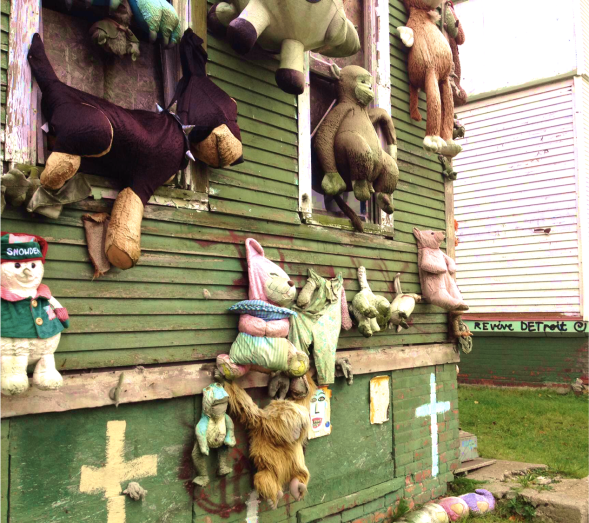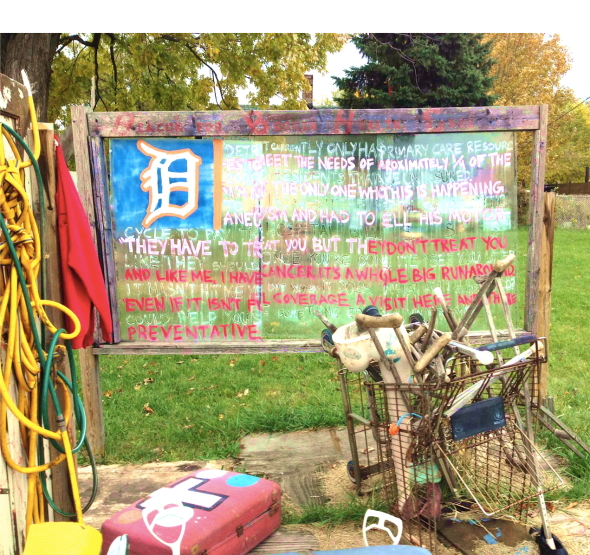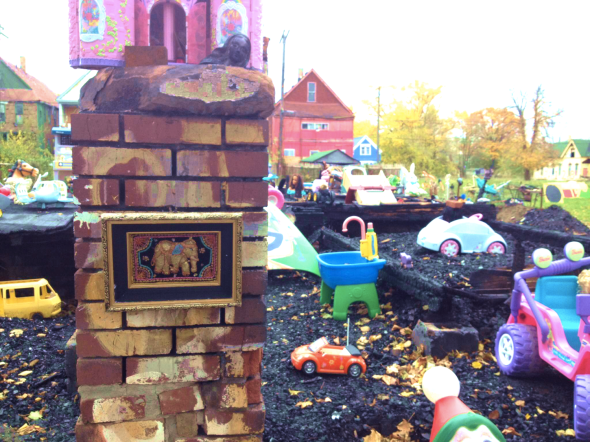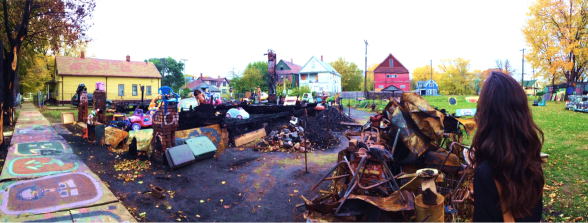A vast carpet of stars
Posted: 10/01/2014 Filed under: Bible, Identity, life, Religion, Seminary, theology, Writing | Tags: christianity, life, magi, sermon, spirituality, star of bethlehem, stars, three wise men 2 CommentsA sermon preached at First Congregational Church of Minnesota, UCC
January 5, 2014
When I began my first year at seminary, it was as a religiously wounded young person who had been spiritually mistreated throughout my youth and young adulthood, in the same way that I imagine many of us in this congregation have been. When I was in high school, my personal salvation had been linked to all kinds of things: I must not drink, I must not be pro-choice, I must not have sex before marriage (in fact I really should not even kiss before marriage), and God forbid that I might come out as queer. During my sophomore year, one of my teachers told the only Jewish student in school, in front of 30 other students, that she would go to Hell if she did not “accept Jesus Christ as her personal Lord and Savior.” To this day, I shake to remember the abuse of power and the anti-semitism inherent to my teacher’s action.
To be clear: there were many things that were perfectly nice about my high school experience, and I also remember parts of those years as more nuanced than the broad strokes with which I’m painting now. But what I felt, I know to be true. And I felt confused and hurt by many of the teachings endorsed by those in leadership at my school. And, despite my misgivings, the psychological, social, and spiritual consequences of challenging these teachings proved to be too stressful for my teenaged self. I feared the wrath of God. So I believed what I needed to believe; I said what I needed to say, and I hoped it would be enough to help me escape the fiery confines of Hell – which, others assured me, was a very real place.
By the time I arrived at seminary, I had done enough processing to know that none of these things would condemn me to an eternity in Hell – I even knew that there were reasonable Christians who doubted Hell’s existence altogether! Nevertheless, on my first day at seminary, I told people that I was “culturally Lutheran” – but I couldn’t quite bring myself to carry the identity of “Christian”. Unable to make sense of how to rectify the pain of my adolescence, I had six months earlier left Christianity behind in frustration and anger, telling myself I was only going to seminary as an academic pursuit.
And yet, by the end of the semester, although I could not yet identify it, and wouldn’t for years to come – and although I could not interpret it, and although I did not know from whence it came, still I knew that a star called to me from out of the deep. And I felt deeply compelled to follow it.
We humans have long been taken with the night sky, searching for answers in the patterns of the stars’ passing, or traversing the oceans with the north star as our faithful guide. We read our horoscopes (albeit with varying degrees of seriousness), predicated by the locations of the constellations at a given moment in time. We tell futuristic stories with characters who are pioneers on space’s next frontier, and we catapult our astronauts and galactic machinery to places like Mars, and the Moon.
The stars hold so much mystery for us, and yet we are surrounded by them. We are hemmed in, crowded, enfolded by all the questions and ideas and possibilities the universe has to offer.
Perhaps for this reason it is something of a shame that our story of the wise men and the star has lost some of its original context. Christian tradition determined long after the time of Matthew that there were three wise men, and that in fact they were kings, named Caspar, Melchior, and Balthasar. Lovely though the story may be, the Magi were not kings but royal priests thought to come from Persia, in the East, and they were often advisors to kings and leaders. They were dream-interpreters, sages, teachers, and yes – they were followers of the stars.
Richard Horsley, author of The Liberation of Christmas, claims that the Magi were figures of religio-political importance in the ancient middle east, known for their wisdom, but also for their political role in affirming or denying divine support for a king. The Christmas story we tell – of the Magi’s recognition of the infant King of the Jews in the time of Herod – is at once a political story of rejecting the onerous and oppressive rule of Rome, AND it is a profoundly religious story of reading the symbolism in the night sky and following the star to Bethlehem.
Episcopalian Bishop John Shelby Spong adds his voice to the mix on the topic of the magi. Like Horsley, he says rather than focusing on whether the story of the star and the magi are historically or literally true, as readers of the text we ought to seek rather the truths inherent to the story. In doing so, Spong points to the use of the Jewish literary tradition known as midrash, which expounds upon Biblical stories, often filling in gaps in the storyline, and bringing new meanings to familiar ideas and motifs.
For example, the author of Matthew may have been using midrash when constructing the story of the Magi and the star. By inserting the Magi into the story – these mysterious teachers from a faraway nation – Matthew made new today’s prophetic text, Isaiah 60, which prophesies all nations being drawn to the light of God. Similarly, Matthew gave reference to texts like Numbers 22, which tells the story of a seer from the East who sees the star of David at its rising. The recasting of these familiar stories within a new context was never intended to be understood as literally true. Instead, it was a literary tool, employed to convey a meaning about the world as it should be: a world free of oppression, a world in which love abounds, a world in which an equal number of stars carpets all of our skies.
Knowing what we do about the Magi, I like to think of them not as followers of just one star, but as perpetual star-chasers. What dreams, and whose dreams, had these Magi divined before discovering this infant, Jesus? What mysteries unfolded in their minds as they gazed up into the star-studded sky? And as they departed along their way, what new star guided their path?
The gleaming star of Bethlehem represents so much more than a pretty story. Depending on how the story is told, if we are lucky, the star can be the voice of God, calling us to the place where human life encounters the Divine;
Or, depending on how the story is told, the Star may also be portrayed as the single beacon of truth leading all of humanity to one and only path to salvation.
That might not sound so bad, unless you overlay it with memories like I have from high school, or other experiences you might have had in your life. For those of us who identify as inclusive or progressive Christians, we often struggle with the knowledge that some parts of our tradition intentionally, even hatefully, exclude others. We struggle with the categories of “saved” and “unsaved” – perhaps we might even wonder where we would fall on the spectrum. Certainly I am Christian. But do I “accept Jesus Christ into my heart as my personal Lord and Savior?”
The question reads more as a cultural signifier than a confession of faith.
And so we are presented with more questions: What does it mean to be Christian today? Who is it that we say we are, and how should we communicate that identity to others? What role does the title “Christian” assign to us – in what ways does it restrict us, and in what ways does it release us to be who it is that we say we are?
The answers to these questions are as varied as the stars in the sky. Each one can lead us to a infinite number of places, to magnetic black holes and cream milky ways and gleaming northern lights. One could get lost amidst the deep.
And yet, here we sit, all together, on this very frigid January morning. The temperature today will not make it above zero, and school is cancelled statewide tomorrow because it’s so cold. Our church has no parking lot, and exposed skin can get frostbite in less than ten minutes in these temperatures – and still – here we are, gathered together today.
But why?
What star compelled you here this morning?
Was it the star of hope, that small but steady flare that rises early in the twilight, climbs high into the atmosphere, and does not fade ‘til dawn?
Or was it the star of grief? That star which originates in a big bang!, streaking hot across the sky, pummeling downward with breakneck speed until it settles – but never coming fully to rest?
Was it the constellation of community, which weaves its graceful dance across the night, twinkling like a cluster of festive flames across the universe?
Or was it the star of wonder, peering out from the darkest depth of the most velvet black, the light of it having traversed millions of miles and eons of years to find its way, right here, right now, to shine down on just
exactly
you?
For our lives our rife and ripe with a vast carpet of stars. They are beyond us and behind us and within us and between us, each one glinting a clandestine whisper of love.
Like the Magi of the East, the stars we chase are multiple. There is not only one star in the Universe, waiting ominously to be discovered. No, there are infinite quantities of constellations, each with its own meaning as they splash their way through the night.
The stars lead us to each other. They lead us to the Sacred. The stars lead us home.
Regeneration through provocation: Detroit, hope, and a new world order
Posted: 19/11/2013 Filed under: Bible, life, Race, Religion, theology, Writing | Tags: 2 Thessaloanians, capitalism, Detroit, economic justice, economics, essay, heidelberg, Heidelberg Project, hope, Isaiah 65, racism, sermon, writing 1 Comment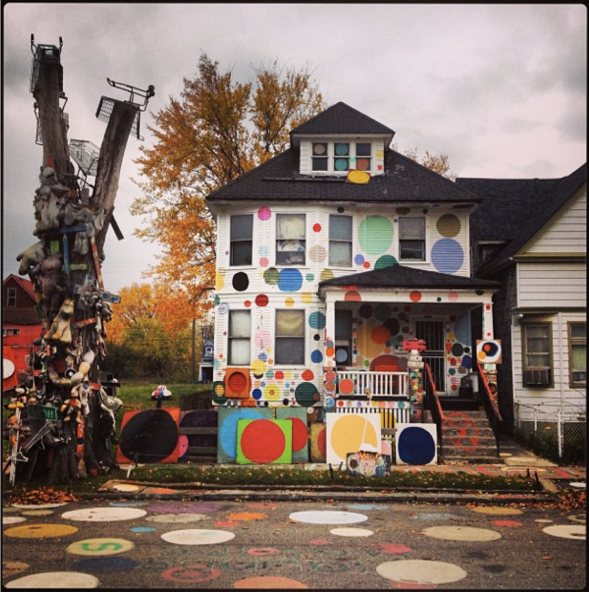 We drove down the street on a blustery day in East Detroit, pulling off to the side of the road to step out into the drizzle and the grey. As we emerged from the shelter of the vehicle, what I could describe seeing are the same tropes many people talk about, when they talk about Detroit. The boarded up and burned out and abandoned homes. The razed lots, the empty streets.
We drove down the street on a blustery day in East Detroit, pulling off to the side of the road to step out into the drizzle and the grey. As we emerged from the shelter of the vehicle, what I could describe seeing are the same tropes many people talk about, when they talk about Detroit. The boarded up and burned out and abandoned homes. The razed lots, the empty streets.
But then we turned a corner, entering a stretch of blocks which was the reason we came to Detroit in the first place: an art installation called the Heidelberg Project. Blending art and street, the Heidelberg Project reclaims abandoned homes and lots, creating an open conversation between discarded objects, the streets of Detroit, and the people who come to visit the place.
Let me be clear: this is not a neighborhood beautification project. Some of the homes are splashed with bright polka dots that spill out from the front porch to the sidewalk to the street, bringing whimsy and childishness into an area which for years has been characterized by redlined blight and poverty. Others are covered with oversized stuffed animals, stapled, misshapen, and weathered by time and rain – a grotesque nod to those who once inhabited the space, to the passage of time, to abandonment.
People tell stories about Detroit. We like to think we know what happened in the city’s history: the rise of the automobile industry, Henry Ford’s promise that each worker ought to be able to buy his own car, and even for a brief moment, the promise of Detroit as a beacon for racial equality. Then, the closure of various factories led to sweeping unemployment, highlighting racial divides across the city. Wages depressed. The interstate plowed through the city, destroying vital areas of town, particularly the neighborhoods where black folks lived. The 1967 riots ensued. Vast white flight, paired with the devaluation of homes, meant that many houses were simply abandoned by their white owners as they streamed out of the city. Much of this time, the cheerful music of Motown was touted for bringing people together, even as the city, in many places, literally burned to the ground.
In some ways, Detroit reminds me of ancient Jerusalem, the Israelite capitol that was razed again and again by its empire neighbors, the Greeks, the Persians, the Babylonians, the Romans. Of course, the repeated destruction of Jerusalem was not necessarily within Israel’s control. Instead, it had much more to do with power to control resources. Because it held the trade routes that ran from Mesopotamia to Egypt, the narrow passage that made up Israel was especially coveted by whatever up-and-coming Empire was next in line.
More recently, the way we within the United States struggle for resources has become somewhat more “civilized”, shielding ourselves from direct contact of violence. Instead, with our silver sword of capitalism we defend any action that turns a profit, cannibalistically ravaging our own cities and our own people through the powers of the pure market run awry.
Walking through the art in the blocks of Detroit, I felt at once hopeful for the resurgence of the city and deflated for this place that some once called home. I felt provoked: Provoked to ask questions about who once lived here and what their lives were like; about who still lives here and what their lives are like. I wanted to know the various iterations this neighborhood took on over the last century, what external forces and structures created a system that turned its back from this place – and who made the decisions resulting in that system. More than anything, I felt an uncomfortable disturbance dwelling deep inside me.
Because it is not only wars and empires that raze and ravage the cities of God. Often, we tear one another down more indirectly – through the suppression of wages, through unjust financial practices, through the disinvestment of our government from certain people and certain places, through looking the other way when our neighbors are in economic pain.
Wages deflate beneath a living wage, and the standard response is to ask why the poor don’t just work harder. But a person should be able to work full time and support her family above the poverty rate.
People go hungry, and the standard response is to ask if they are really budgeting correctly. But when there is enough food to feed the world’s population, no one should have to go hungry.
A woman is bought for sex, and the standard response is to ask why she chose that profession. But the real question should be: how is it that we came to live in a world where a price tag is put on a human body?
These arguments are so pervasive that it is easy to read texts like today’s in 2 Thessalonians and hear the standard response ringing through our minds. Ah, we read: “Anyone unwilling to work shall not eat.” Yes–such true and vast wisdom!
But a closer reading of the text reveals that the people to whom Paul is referring aren’t just refusing to work. Instead, they are active – but they are putting their energy to ill use, what Paul calls “mere busybodies,” stirring up discord in the community. This passage has nothing to do with whether or not a basic safety net should be in place in society. But it is about how to solve problems and be in community with one another – especially when the gossip of a few can destabilize the whole.
Paul isn’t talking about the work ethic of a few – he’s talking about work ethics of the whole.
And in a very real way, the prophet Isaiah addresses work ethics, as well.
At the time when this particular text in Isaiah was written, most scholars believe Israel was under the thumb of Persia – a period of time marked by the contractual agreement Israel had with Persia, promising extra labor and taxes siphoned from Israel – like the cream skimmed from a brimming pail of fresh milk. Or, rather: like half the milk poured out onto dry ground, nutritious nectar wasting away, nourishing instead the thing that oppresses.
The standard response at that time might have been that Persia had the power – that this was what Israel had to do to keep the peace, to maintain status quo, merely to survive. But Isaiah is very clear about the Jerusalem that God will make new again: They shall build houses and inhabit them; they shall plant vineyards and eat their fruit. For like the days of a tree shall the days of my people be, and my chosen shall long enjoy the work of their hands. They shall not labour in vain.
God’s new world cuts against the standard interpretation of the economics of power and resources. God’s vision of a new world is material – but it is a world in which a body’s daily work means also its replenishment at mealtimes and at night. God’s world both boggles our understanding of the way things are, and restores our vision of the way things ought to be.
Earlier this week, one of the houses in the Heidelberg Project was burned down – arson was suspected. It was the second time in six months the Project has experienced this type of vandalism, and when I was there two weeks ago, I walked amidst the remains of a different house, the ashes still fresh, but wet and cold from the rain.
I felt despair when I saw the remains of that house, and when I read this week that another had been set to flame, I felt it again. A loss of hope: that the beautiful, creative things in this world are more often set to flame than they are celebrated.
But even in death we are promised new life. I noticed, walking in amongst the ashes, bright pops of color and new discarded objects that someone had placed within the rubble. Even in its destruction the house took on a new form, not ceasing to exist, but becoming different, confounding, troubling; provoking even more questions of anyone who chooses to engage with it. This, too, is how Detroit will rebuild: in the destruction and provocation and regeneration of all that it is.
Isaiah offers up hope when the world feels beyond despair once more. When the standard responses crowd the mind, when it feels impossible to know how to continue on, God promises the hope of a world made new. Like a ravaged city that provokes and disturbs us, the way of God generates in us the will to rebuild, to start afresh, to make our world anew. Like a bright green dot unabashedly painted on an abandoned home, the way of God jars the senses awake, bringing the head and the heart into a new understanding of this world order,
so that we may train the wolf to lay down with the lamb;
so that we may tame the lion to eat straw;
so that together, we may bring the fierce things of this world to be made new.
In Defiance of Death
Posted: 28/07/2013 Filed under: Bible, Identity, life, Religion, sex, theology, Writing | Tags: bible study, danger, death, exegesis, love, preach, sermon, sex, song of solomon, song of songs 2 CommentsA sermon preached on Song of Songs 7-8
University Baptist Church, Minneapolis, MN
This is a memory I return to like a ritual. A streak of blood flashing through the air, men crowded close around my beloved brother and cousin, tough blows falling like a heavy rain, the pronounced sense of powerlessness in the vain screams I lifted up to no one.
It was nearly a decade ago that my brother, my cousin and I were attacked by a group of men on a poorly lit street in Quito, Ecuador. We survived, but each of us have struggled in our own way to make sense of it, alternating between panic attacks, substance abuse, post traumatic stress disorder, anxiety disorders, and, of course, in my case: writing sermons about it.
At the age of 22, this was the first authentic glimpse I’d caught of my mortality – of all our mortality. The bone and the blood and the vomit and the tears I witnessed that night congealed to form a mortar sealing my fate: my body is penetrable. I now understood with horrible clarity that this skin we wear is not a wall of bulletproof glass, but rather a porous barrier through which worldly molecules are sucked in and spat out, like the creams we spread on our elbows, like the sweat we emit with exertion.
Our homecoming one week later was to a gaggle of loved ones awaiting our arrival at the airport. Haggard faces greeted us, worried eyes and puckered chins, as we paraded down the escalators attempting to prove our relative health and general aliveness. We were not very convincing, but as our bodies were embraced, as familiar arms enfolded us, for me at least, my healing began.
That moment of healing — that embrace, right there — is how it is with love.
You may find this a strange way to begin a sermon on the Song of Songs. After all, just moments ago I was reading aloud one of the most delicious texts in the Bible, a sensual and erotic traversing of a lover’s body from toe to head. And yet we all know, at the core of who we are, that even as we embrace one another with the most intimate of grasps, to love another is to risk terrible pain. We love in the midst of life, which is also to say, we love at risk of loss.
The Song portrays this risk as Danger. Do you remember the watchmen of the night, the sentinals who in chapter 5 strip the woman, who beat her and bruise her, simply for walking about the town at night in search of her lover? In today’s passage, we hear the woman wishing her lover were like a brother to her. It may sound strange to our ears, but her wish is logical. At that time, she could be seen with a brother in public, even kiss her brother in public – but not so with an unrelated man. To do so was a violation of social norms, a dangerous act.
Gender roles were notoriously strict in ancient Israel. Most of us know that adulterous women in ancient Mesopotamia were often stoned to death. What we often don’t remember is that very few women who behave out of the ordinary in the Bible are praised for it. Israel in biblical texts is frequently portrayed as God’s adulterous wife, who in the book of Hosea is stripped, exposed, and beaten for her infidelities. Sex in the Mediterranean was first and foremost seen as an expression of power, with two actors: the superior, penetrator; and the weaker, the one being raped. To be a woman was to be understood systematically and unquestionably as the inferior, weaker sex.
Within this broader context, it is certainly remarkable that the Song portrays a female character who not only names what she wants, but also pursues it unapologetically. For any ancient Israelite text to celebrate female desire, the female body and female sexuality – and to have it upheld in the canonization of the Bible – is enough to make any modern-day feminist weak in the knees. I mean, look at this stuff!
In chapter seven, the woman in the poem is compared to a queen, with rounded thighs like jewels and a nose as elegant as the tower of Lebanon. Her breasts are first compared to twin gazelles, then to coconuts at the top of a stately palm tree, and finally they become like clusters of grapes on the vine – significantly sweeter, closer to the ground, and easier to pluck than your average coconut or gazelle. As the lover’s passionate description of the woman continues, we, the listeners, are brought in closer to her, more intimately learning of the apple-sweetness of her breath, and of her kisses, which are compared the smoothest, sweetest wine, gliding over lips and teeth.
“My beloved is mine and I am his,” she declares in avid response to her lover’s adoration, and she calls him forth to the fields and the vineyards, where the pomegranates are in bloom, and where she has saved up the choicest fruit for him to consume.
Since her lover had previously compared her breasts to grapes on the vine, I think we can all safely assume that she isn’t exclusively talking about… fruit.
And yet danger is never far around the corner. These two chapters of the Song, as with most of the Song before it, are fraught with unrequited longing, with an undercurrent of tension and danger throughout. The woman repeatedly expresses her wish to kiss her lover in the streets of the city, and she adjures the Daughters of Jerusalem, her audience, not to wake love before it is ready – presumably because it may be too dangerous to do so. Later in chapter eight, she must defend herself and her actions to her brothers, who see her as a child and threaten to lock her away from the rest of the world.
Any of us who have loved, romantic or not, know what it is like to have our love threatened. For my family, the night I and my brother and my cousin were attacked, the danger was also men in the streets of a city at night, who threatened to take our lives. But Danger comes in many forms. A friend of mine recently gave birth to a stillborn child; the danger she faced was pre-ecclampsia, and it took her child before they were even able to meet face-to-face. For some, Danger is named racism, and allows a man to legally shoot and kill a 17-year-old boy for playing his music too loud, as was the case for Jordan Davis in Jacksonville, Florida. Some of us face danger in the form of our own inner demons, depression or addiction or anxiety, which try to convince us that we are unlovable, or undeserving of love. And heartbreaking loss comes still in the form of divorce, sexism, betrayal, homophobia, anger, abuse, misunderstanding. At times it can feel as though Danger stalks us from every angle, ever-present, as vigilant as the watchmen of the wall.
To love others is to risk the pain of loss. And yet the act of loving others in spite of this loss is to defy death itself, to stake claim to the idea that love is strong as death.
Set me as a seal upon your heart, says the woman in the Song – for love is strong as death. Yes, set me as a seal on your arm, for passion is as strong as the grave!
It has become a recent trend for couples, when they marry, to tattoo their wedding bands on their fingers. But the woman in the Song goes even a step further than that. She is not even hoping even to be branded upon her lover’s heart, as our modern ears might hear it, but to be made a part of his seal, which in the ancient world would have been something like his signature.
A person’s seal was dipped in ink and rolled upon a sheet of paper. The opposite impression, much like a modern-day stamp, acted as the individual’s signature when sending a letter or signing a contract. They were often worn on a chain, hung around one’s neck – coming to rest atop the heart – or around the arm or wrist as a bangle. When the woman commands her lover to set her as a seal on his heart or his arm, she was not merely asking for their love to be branded upon his being, but indeed that she become as much a part of him as his very identity.
Were she branded upon his heart as a memory, his love would die with his death.
Were he to set her as a physical, permanent seal on his body, it would turn to dust just as quickly as would his body.
But to incorporate their love into his seal, into his very identity, the woman believes, is to transcend and outlast death. She becomes a part of him, in life and in death. His signature remains in significant documents, his identity in the memories of the community, his very being, even in death, bound up in hers.
When we give of our love to others, we are tapping into the essence of who we are as human beings. When we open ourselves up to vulnerability, we change and are changed by those who we love. It is in the experience of mutually reaching out to one another, with our bodies and our hearts and our minds, that rebelliously defies death’s sting.
In this way we confront death: in the act of loving, embracing, connecting, holding, conversing, admiring, laughing, touching, consoling, stroking, clutching one another. We love in spite of death. We love in the midst of death. We love at risk of death. We love in defiance of death.
for love is strong as death,
passion fierce as the grave…
[So] Make haste, my beloved,
and be like a gazelle
or a young stag
upon the mountains of spices!
Come to the garden.


